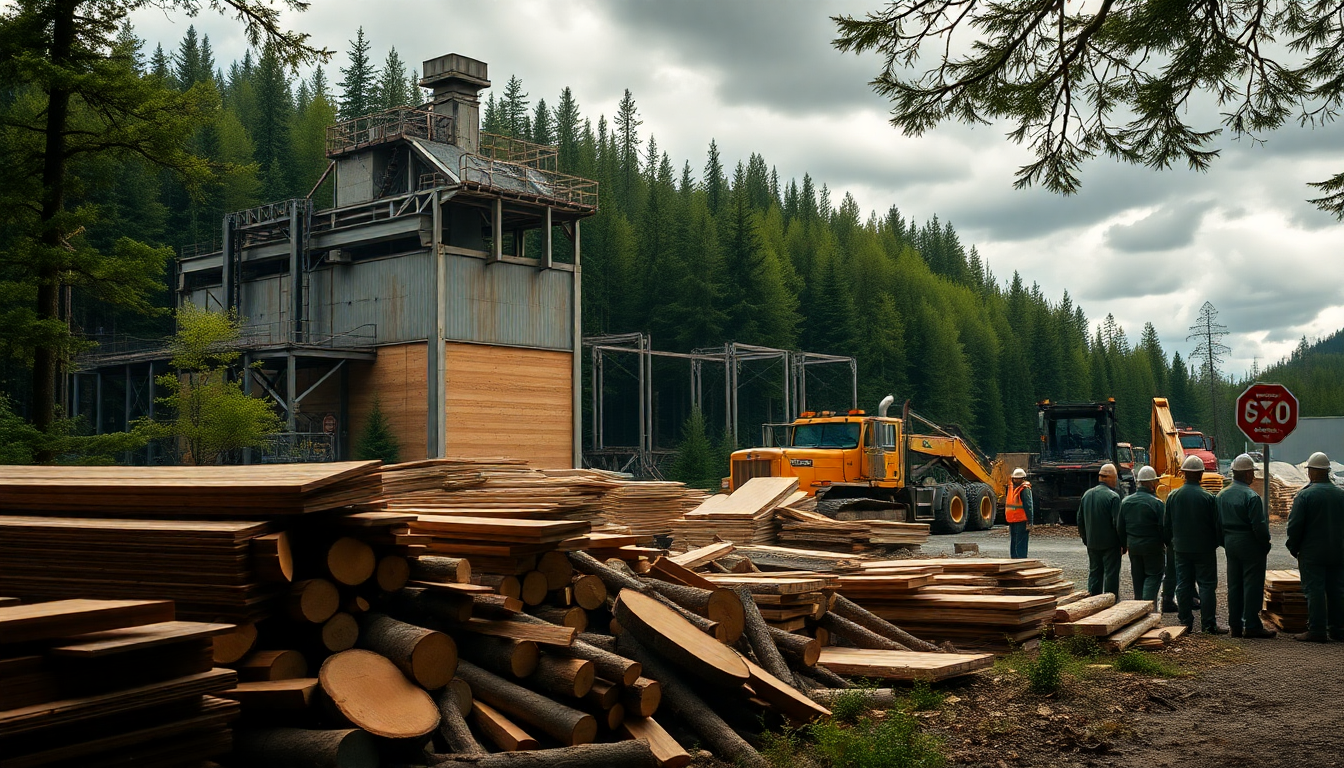Table of Contents
The ongoing challenges faced by B.C. Veneer Products highlight just how complex the local manufacturing sector can be. As the company struggles to secure a steady wood supply to keep its operations running, one has to wonder: how committed is the provincial government to truly supporting local industries? To get to the heart of this situation, we need to delve into the intricacies of the forestry sector and what it means for manufacturers.
The Crisis at B.C. Veneer Products
B.C. Veneer Products, based in Surrey, specializes in crafting value-added wood products like doors, windows, and even musical instruments. Recently, owner Jeff Gunia has voiced his growing concerns about the future of his business.
Having established himself as a vital player in producing high-value veneer materials, he now finds his company teetering on the brink of closure due to a lack of wood fiber supply. Gunia pointed out that his current supplier has hit its allowable cut for the year, leaving him unable to source the logs needed to sustain operations and the jobs of 17 employees.
The situation has become even more pressing. While there’s a potential harvesting block scheduled for January, Gunia argues that this timeline is far too late for his business. He’s calling on the government to expedite the extraction of additional resources immediately.
The reality is clear: without timely intervention, B.C. Veneer Products could shut down, jeopardizing its role in the province’s effort to promote value-added wood products.
Government Response and Industry Challenges
Gunia’s frustrations extend beyond his own company’s struggles; they’re compounded by the provincial government’s rhetoric about supporting local manufacturing.
Premier David Eby’s recent promotion of innovative wood products, such as a soccer ball made from “wood leather,” has left Gunia feeling skeptical and somewhat betrayed by a system that seems to overlook businesses like his. How can the government champion high-value products while allowing local manufacturers to falter? This contradiction raises serious questions about the government’s commitment to its stated goals.
Critics, including BC Conservative Leader John Rustad, have pointed out that the government’s actions don’t match its words. They argue that the NDP has failed to provide a coherent strategy for the forestry sector, leading to job losses and an unstable supply chain for local manufacturers. This criticism uncovers a broader issue within the industry: the dire consequences of lacking strategic foresight for manufacturers who depend on a consistent supply of raw materials.
Looking Ahead: The Need for Immediate Solutions
Amid these challenges, Forests Minister Ravi Parmar has expressed a willingness to engage with Gunia to understand the intricacies of his business’s struggles. While Parmar has outlined plans to increase the volume available through BC Timber Sales and explore innovative distribution methods, Gunia remains skeptical. He emphasizes the urgency of action over mere promises. Describing his business as being in ‘hospice,’ the need for a quick solution is strikingly clear.
The future of B.C. Veneer Products hangs in the balance, and the implications for the industry are significant. If prompt action isn’t taken, the closure of such a facility could set a worrying precedent for how local manufacturers are treated in the province. The government must not only hear the concerns of businesses but also respond decisively to support them. If they fail, the vision of a thriving value-added wood industry might remain just that—a distant vision rather than a vibrant reality.





